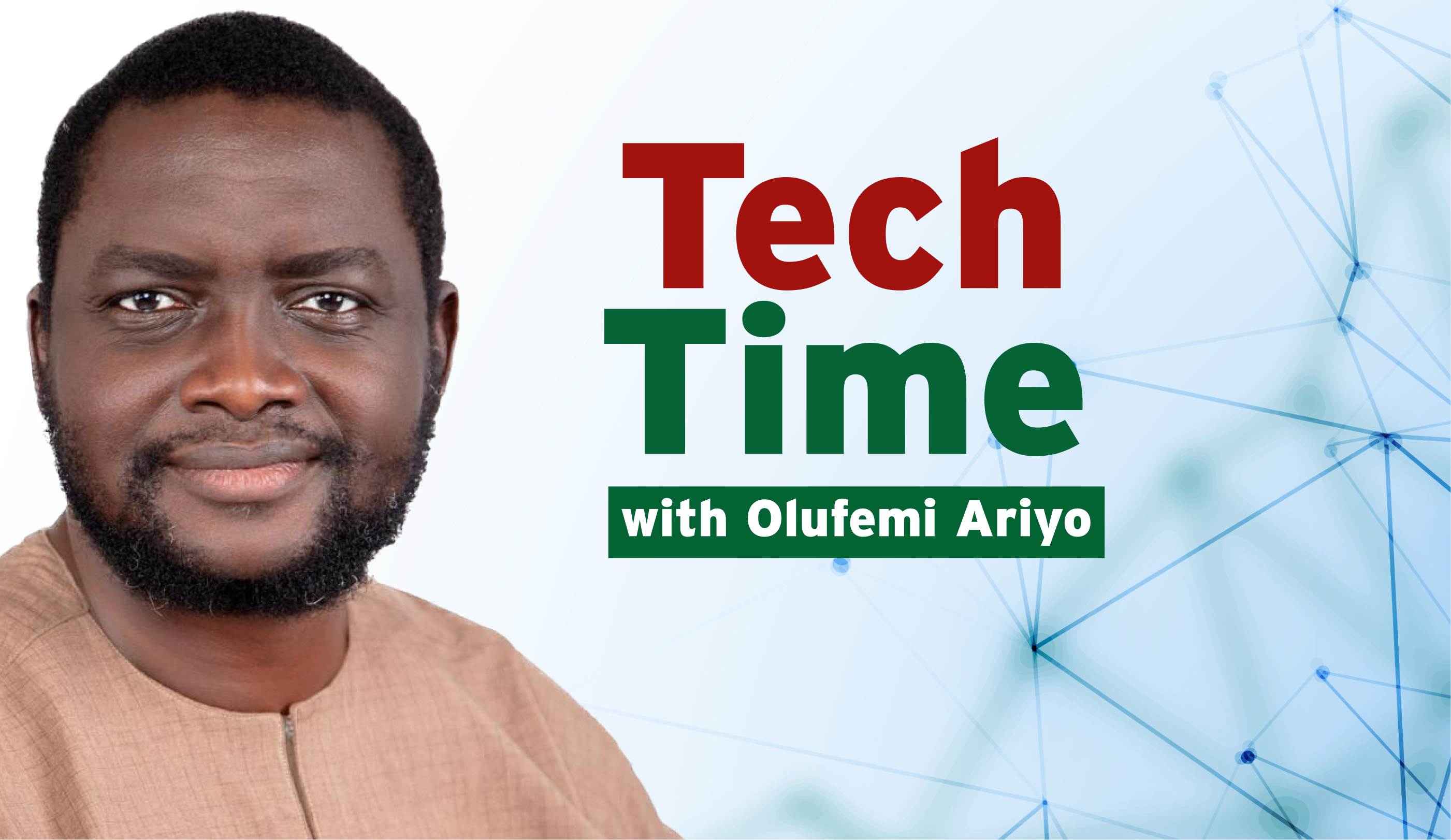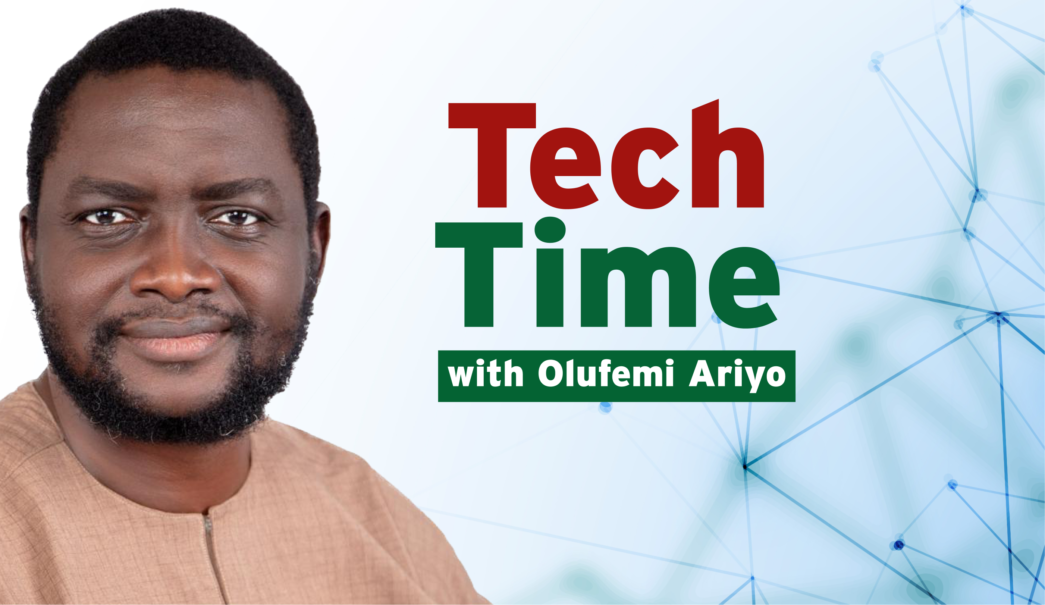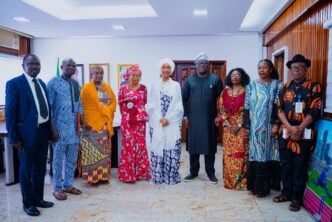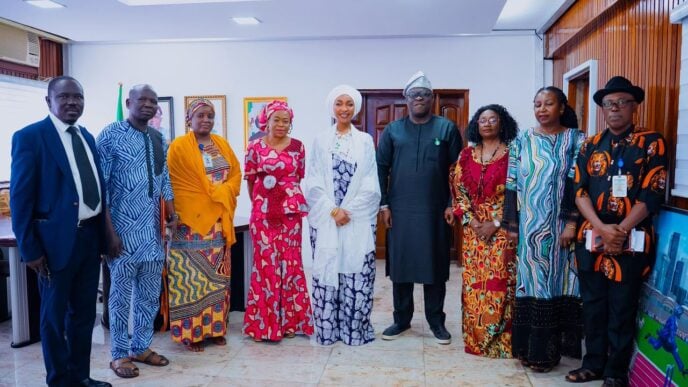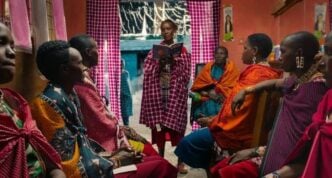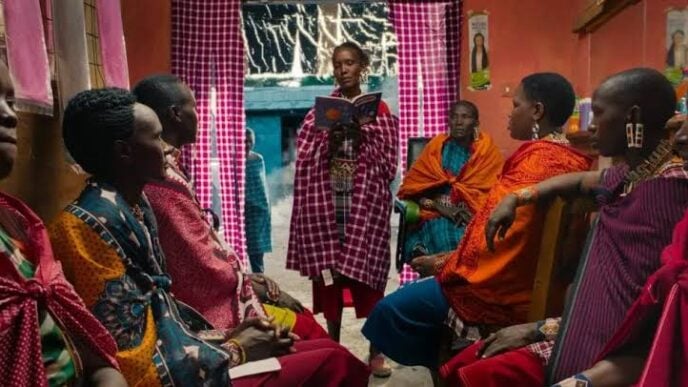This paper presents a bold, future-focused blueprint to reform Nigeria’s National Youth Service Corps (NYSC) into a dynamic Civic Tech Corps—a digital-first, impact-driven platform that mobilises the country’s youth as civic innovators. With over 60% of Nigerians under 25, this proposal addresses the urgent disconnect between a digitally fluent generation and outdated civic institutions that no longer reflect their skills, passions, or aspirations.
The paper argues that Nigeria’s current model of national service, while rooted in unity and reconciliation, has become a missed opportunity—failing to leverage the technological creativity and civic energy of its youth. In response, the Civic Tech Corps offers a reimagined alternative where national service becomes a channel for solving real-world problems through technology, data, collaboration, and community engagement. Corps members would engage in high-impact initiatives such as remote tutoring, civic tech development, community data mapping, agri-tech deployment, and digital governance innovation—bridging the gap between digital skill and national need.
A core pillar of this vision is diaspora engagement—not through remittances alone, but via mentorship, virtual masterclasses, innovation funding, and cross-border collaboration—transforming brain drain into brain gain. The paper outlines a phased implementation plan, beginning with four pilot cities, supported by a centralised digital platform, gamified recognition systems, and partnerships across government, tech, civil society, and academia.
More than a program redesign, the Civic Tech Corps is positioned as the foundation for Civic Infrastructure 2.0—a national transformation strategy where youth are not passive recipients of policy but empowered co-architects of Nigeria’s future. By fusing purpose with participation and innovation with service, this model redefines what it means to build a nation in the 21st century.
Advertisement
“A nation is not built by infrastructure alone, but by the imagination and action of its people—especially its youth.” – Olufemi Ariyo
- The Problem: A Disengaged Generation, A Stalled System
Nigeria stands at a defining crossroads in its developmental journey. With over 60% of its population under the age of 25, the country is endowed with one of the most youthful populations globally—a demographic dividend that, if strategically harnessed, could be the engine of national renewal and global competitiveness. But today, that potential is at risk of being squandered.
Moreover, youth unemployment and underemployment rates remain alarmingly high, with millions of young Nigerians either idle, trapped in precarious informal jobs, or locked out of meaningful economic participation altogether. Beyond economic marginalisation, there is a widening chasm between Nigeria’s youth and the civic life of the nation. The pathways through which young people once connected to national purpose (i.e. education, employment, and civic engagement) are increasingly fractured or obsolete.
Advertisement
Nowhere is this breakdown more evident than in the National Youth Service Corps (NYSC). Established in the wake of civil war to promote unity and reconciliation, NYSC once served as a bridge across regional, ethnic, and social divides. But for today’s digital-native generation, it often feels like a bureaucratic formality—a logistical shuffle of human capital, rather than a platform for true contribution or transformation. Many participants report feeling underutilised, unsafe, or disillusioned, with little connection between their assignments and their passions, skills, or future aspirations.
Simultaneously, Nigeria’s best and brightest (those with the ambition, talent, and digital fluency to lead in this century) are either leaving the country in record numbers or languishing in environments that do not challenge or empower them. The result is a growing national purpose vacuum: a generation that is increasingly skilled but civically alienated, connected to global networks but disconnected from local development, fluent in digital tools but unsure how to use them to improve their own communities.
This is not merely a youth crisis, it is a national crisis of alignment. The systems designed to integrate young people into national life no longer match the realities, aspirations, or potential of this generation. If left unaddressed, we risk cementing a culture where brilliance exists in isolation, innovation is exported, and patriotism is eroded by persistent institutional failure.
Advertisement
- The Opportunity: Introducing a Civic Tech Corps for the Digital Age
Imagine a Nigeria where national service does not simply move youth across state lines—but channels their skills, creativity, and tech fluency into nation-building through innovation. What if we reimagined NYSC not as a mandatory year of often-irrelevant postings, but as a Civic Tech Corps—a bold, tech-enabled program where young people serve their country by solving real problems through technology, data, collaboration, and local knowledge? Instead of being posted to a classroom with no learning materials or assigned to roles disconnected from their background, Corps members would be deployed into digital task forces or community innovation hubs designed to make immediate, measurable impact.
Here is what that could look like:
(a). Remote Tutoring for Underserved Schools
Despite recent progress, many rural and inner-city schools in Nigeria remain severely under-resourced, particularly in STEM subjects, computer literacy, and English proficiency. A Civic Tech Corps could deploy Corps members as virtual tutors, connecting them with students across the country via edtech platforms, WhatsApp classrooms, or even local radio-assisted learning. To better understand this, a computer science graduate in Enugu could tutor JSS students in Yobe via Zoom or mobile apps, coordinated by a central platform. Corps members could also create digital learning materials or assist teachers with grading using AI tools.
Advertisement
(b). Civic Tech and Governance Innovation
Nigeria’s governance challenges are often rooted in opacity, inefficiency, and poor citizen feedback loops. Civic Tech Corps members could work in collaboration with local governments, NGOs, or state agencies to design or improve digital tools that enhance transparency and accountability. A team of Corps members in Kaduna could co-create a simple web portal that tracks the budget and progress of local infrastructure projects (roads, boreholes, schools) and enables citizens to submit feedback, flag delays, or report corruption.
Advertisement
(c). Community Data Mapping
Many communities across Nigeria lack basic data on healthcare, education access, sanitation, or nutrition—which severely hampers policy planning and aid delivery. Trained Corps members could serve as digital mappers, gathering real-time, geo-tagged data to identify gaps and build open-source community dashboards. A simple example of Corps members working with a public health agency in Cross River could map areas lacking access to maternal healthcare, then help develop a referral tool that connects women to the nearest facility or mobile clinic.
Advertisement
(d). Tech-for-Agriculture Initiatives
Agriculture remains a cornerstone of Nigeria’s economy, yet millions of smallholder farmers operate with limited access to information, markets, or weather data. The Civic Tech Corps could deploy agriculturally savvy Corps members to rural communities to digitise farming practices, build cooperative platforms, or introduce precision agriculture tools. In Niger State, Corps members could help farmers use AI-enabled pest detection apps (simple classification models), launch SMS-based market price alerts, or digitise cooperative records using simple mobile platforms like KoboToolbox.
Advertisement
(e). Digital Governance and Policy Labs
Public policy in Nigeria often lacks youth input or real-time testing. What if Civic Tech Corps members participated in digital policy labs, where they design, test, and iterate on local governance solutions? Imagine the partnership with a state House of Assembly, where Corps members in Ogun could conduct citizen surveys, simulate new youth employment policies using open data, and present impact projections through data visualisation dashboards.
Not a Replacement, But a Reinvention
This is not about abolishing NYSC—it is about evolving it. The Civic Tech Corps would complement or reform the existing structure, making it fit for purpose in the digital economy. It shifts national service from a model based on relocation and routine, to one centred on relevance, results, and responsibility (3-Rs critical to nation building). Imagine the collective impact if tens of thousands of youth were mobilised each year not just to fulfil a statutory requirement—but to build digital tools, mentor students, collect vital data, improve government delivery, and solve hyperlocal problems across Nigeria.
We have the human capital and the technology. What is missing is a national framework that connects the two, turning service into a stage for innovation, dignity, and measurable change.
- Bridging the Gap: Diaspora as Catalyst
In a recent essay, I argued that Nigeria’s so-called “brain drain” can—and must—be transformed into brain gain, using the tools and technologies that now connect us across borders in real time. The Civic Tech Corps presents a powerful, practical mechanism to do just that—by creating structured, meaningful opportunities for diaspora Nigerians to directly contribute to local development without physically relocating.
While remittances from Nigerians abroad already contribute over $20 billion annually to the national economy, financial flows alone do not build civic capacity, institutional trust, or technological progress. What Nigeria needs now is a shift from transactional diaspora engagement to transformational collaboration—leveraging the experience, networks, and expertise of its global citizens to fuel innovation at home. Through the Civic Tech Corps, the diaspora becomes not just a donor community, but a strategic development partner—playing an active role in nurturing the next generation of civic innovators.
(a). Mentorship Networks for Real-Time Guidance
Diasporans in fields such as software development, public policy, healthcare, digital marketing, and AI can serve as virtual mentors for Civic Tech Corps members—guiding them through real-world problem solving, product development, or career planning via scheduled calls, Slack channels, and digital bootcamps. A data analyst in Toronto could mentor a team of Corps members in Jos working on a budget transparency tool for their local government, offering feedback on data collection, visualisation, and stakeholder engagement.
(b). Global Masterclasses and Skill-Sharing
Members of the Nigerian diaspora (many of whom work in leading global institutions) could be invited to offer monthly virtual masterclasses on topics ranging from digital governance and ethical AI, to civic entrepreneurship, grant writing, or scaling nonprofit impact. A Nigerian product manager at Google could lead a webinar for Corps members on design thinking for public sector solutions, using real-world case studies from civic tech innovations in other countries.
(c). Sponsorship of Innovation Hubs and Civic Labs
Well-established diaspora communities, especially in the U.S., U.K., and Canada, could pool resources to sponsor civic innovation labs or local tech hubs where Civic Tech Corps members prototype solutions to local challenges. These labs would serve as physical spaces for creativity, collaboration, and co-development. For instance, a Nigerian-American doctors’ network could fund a Digital Health Lab in Akwa-Ibom State where Corps members work on maternal health data tools or SMS-based medical referral systems for rural clinics.
(d). Cross-Border Internships and Exchange Opportunities
The Corps program could include a select track where high-performing members are linked with internships in diaspora-founded startups, NGOs, or development organisations—creating pipelines of experience, exposure, and eventual re-investment back home. For example, a Civic Tech Corps graduate who contributed to a civic finance project in Ekiti State might be selected for a remote internship with a policy think tank in London, learning from global models and bringing those insights back to the community.
(e). Contextualising Global Best Practices for Local Realities
Perhaps most importantly, the diaspora brings with it comparative perspective—an understanding of how systems work elsewhere, and how they can be adapted (not copied) to Nigerian realities. This positions diaspora mentors as bridges between global innovation ecosystems and local implementation contexts. For instance, a Nigerian working in Estonia’s e-Governance model could help adapt principles of digital identity or participatory budgeting to pilot projects in Nigeria’s local governments, with Corps members leading local testing.
Hybrid Nation-Building: A Model Rooted in Homeland and Heritage
What emerges is a hybrid model of nation-building—where talent is not constrained by geography, and patriotism is expressed through collaborative problem-solving, not just nostalgic sentiment. It is a redefinition of what it means to serve Nigeria in the 21st century: not simply through physical return, but through intellectual capital, digital mentorship, and strategic co-creation. The Civic Tech Corps, with its built-in digital infrastructure and innovation mandate, creates the ideal interface for diaspora engagement—where young Nigerians at home are empowered by global Nigerian expertise abroad. Together, they become co-builders of a new civic architecture for the country.
- Implementation Blueprint: From Vision to Action
Transforming the Civic Tech Corps from concept to reality requires more than political will—it demands strategic coordination, smart partnerships, and a scalable infrastructure that can evolve with time. No single entity (government, private sector, or diaspora) can build this alone. But together, we can co-create a system that activates youth talent, amplifies civic innovation, and restores national purpose. This is not a utopian dream—it is a practical, achievable national project, if built deliberately through phased implementation, digital-first design, and inclusive governance.
Phase 1: Pilot and Prototype
Start small, start smart. Launch in four strategically chosen cities—each representing a different demographic, geopolitical, and innovation profile:
- Lagos (economic and innovation hub)
- Abuja (policy and governance centre)
- Enugu (southeast education and cultural capital)
- Kano (northern population and market powerhouse)
These cities offer diverse testbeds for innovation and provide the foundation to observe, iterate, and scale the model.
(A). Core Infrastructure Components
(i). A Centralised Civic Tech Corps Digital Platform
A robust web and mobile platform would serve as the backbone of the program. It would function as:
- An application and onboarding portal
- A skills assessment and project-matching engine
- A hub for learning modules and project templates
- A dashboard for progress tracking, reporting, and digital credentials
- A community space for mentorship, collaboration, and storytelling
Think of it as the “LinkedIn meets Duolingo meets GitHub” of civic innovation—custom-built for Nigerian realities.
(ii). Gamified Service Credits and Recognition
To ensure youth participation is motivating and rewarding, the Civic Tech Corps would issue digital service credits, micro-certifications, and publicly verifiable badges for completed projects.
These could translate into:
- Priority access to government jobs or entrepreneurship grants
- Referrals to top employers or innovation fellowships
- Eligibility for diaspora-funded micro-grants or scholarships
- Lifetime alumni status with access to continued learning, mentorship, and networking
This turns national service into a launching pad for careers—not just a gap year of compliance.
(iii). Modular Upskilling Tracks
Every Corps member would undergo tailored training in high-impact civic and tech domains such as:
- Civic education and democratic literacy
- Ethical AI and data privacy
- Open-source intelligence (OSINT) for social good
- Community organising and participatory governance
- Agri-tech, health-tech, edtech fundamentals
These would be delivered via self-paced online modules, live expert sessions (including diaspora-led), and in-person bootcamps at local partner hubs.
This ensures every participant not only serves but also grows.
(B). Multi-Sector Collaboration Model
The program’s strength lies in building coalitions of action, not just committees of ambition. Key stakeholders would play distinct but complementary roles:
(i). Government
- Policy backing and formal recognition of service credits
- Access to public data and local challenges for Corps projects
- Integration with national digital identity and skills registries
(ii). Private Sector
- Sponsorship of civic innovation labs in pilot cities
- Internship placements, hackathon hosting, and skills support
- Advisory roles in aligning training with market needs
(iii) Diaspora Networks
- Virtual mentoring, masterclasses, and project incubation
- Resource mobilisation (funding, tools, visibility)
- Global partnerships with civic tech initiatives abroad
(iv). Universities and EdTech Platforms
- Certification pathways and academic recognition
- Research and evaluation support
- Content creation and platform hosting
(v). Civil Society and Community Leaders
- Project co-design and needs validation
- Local context briefing and implementation oversight
- Cultural relevance and buy-in
(C). Evaluation and Scaling
Each pilot city would run on a 12–18 month cycle, with embedded monitoring and adaptive learning mechanisms. Based on performance data, user feedback, and project impact, the program would expand to additional states—eventually reaching all 36.
An independent Impact Dashboard would track:
- Projects completed and lives impacted
- Skills gained and career transitions
- Community feedback and governance improvement
- Diaspora involvement metrics
The Ingredients Are Already Here
We do not need to invent talent—we have it in abundance.
We do not need to invent technology—it already exists.
We do not need to invent motivation—Nigerian youth are hungry to matter.
What we need is a system—a purpose-built civic architecture that connects all of these elements into a national mission. The Civic Tech Corps can be that system. But only if we build it—together.
- Toward Civic Infrastructure 2.0
We need to be clear: this is not just a reform of NYSC or a pilot tech program—it is a national redesign opportunity. What is at stake is far greater than how young Nigerians spend one year of service. This is about the kind of country we are building, and the kind of future we are equipping young people to co-create. A Civic Tech Corps would serve as the digital scaffolding of Nigeria’s future, where youth are not sidelined as passive recipients of state policy, but engaged as active problem-solvers, digital builders, and civic co-architects.
(a). From Civic Decline to Civic Design
In the industrial era, a nation’s progress was measured by its physical infrastructure (roads, railways, bridges, power plants). These were the lifelines of productivity, trade, and movement. Today, in a digital-first, networked world, progress is increasingly shaped by a different kind of infrastructure:
- Platforms that enable participation
- Systems that gather and act on public data
- Digital ecosystems that empower citizens to organise, innovate, and respond
This is Civic Infrastructure 2.0—and it is just as essential to a nation’s survival and competitiveness as electricity and highways once were.
Just as a power grid distributes energy, civic infrastructure distributes agency—giving people the tools to influence their communities and government meaningfully.
(b). Youth as Builders, Not Just Beneficiaries
For decades, Nigeria’s youth have been spoken about as problems to be managed, not as partners to be engaged. The Civic Tech Corps flips that script. It institutionalises youth participation, not through tokenistic consultation, but through real work, real challenges, and real impact.
Imagine:
- A young developer building a mobile platform for transparent local budgeting
- A graduate from a northern university mapping underserved health centres
- An NYSC participant designing a chatbot that helps voters understand their rights
- A team of young women launching a WhatsApp hotline for reporting gender-based violence
These are not future hypotheticals—they are present possibilities, waiting to be unlocked by systems that trust and invest in youth-led problem-solving.
(c). Civic Tech as a Force Multiplier
This infrastructure is not merely about youth. It is about building resilient, responsive institutions that can keep pace with society’s needs. Civic technology (tools that make government and public life more effective, transparent, and participatory) becomes a force multiplier for:
- Education reform, by crowdsourcing curriculum gaps or deploying digital tutors
- Public health, through real-time disease surveillance or vaccination tracking
- Agricultural efficiency, via mobile advisory systems and cooperative logistics
- Environmental protection, through citizen science, drone mapping, or data collection
And crucially, it makes government more open, accountable, and agile, because it places innovation in the hands of citizens, not just bureaucracies.
(d). Restoring Ownership, Belonging, and Belief
For a generation increasingly disillusioned by leadership failures, corruption, and systemic exclusion, the Civic Tech Corps can restore the broken contract between the state and its youth. By giving young people tools to act, spaces to lead, and recognition for their contributions, we plant the seeds of:
- Ownership – “This country is mine to shape, not escape.”
- Belonging – “My work matters in my community.”
- Possibility – “Innovation is not just for Silicon Valley—it is for Sokoto, for Owerri, for Makurdi.”
This is how nations are rebuilt—from the inside out, not merely top-down.
(e). Nigeria Can Lead
We can choose to be bold: this vision is not just good for Nigeria—it can position Nigeria as a continental leader in civic innovation. Just as Rwanda is becoming a model for digital governance and Estonia for e-citizenship, Nigeria has the scale, the diaspora reach, and the youth talent to lead in Civic Infrastructure 2.0 for Africa. By building a Civic Tech Corps, we are not simply updating a program—we are laying the foundation for a digital democracy, where service becomes strategy, and participation becomes power.
The future is not waiting. Neither should we.
- Call to Action: Let Us Build This—Together
If you are:
- A policymaker seeking scalable youth solutions
- A tech leader looking for purpose-driven innovation
- A diasporan eager to give back with impact
- A young Nigerian tired of waiting for change
Then this is your moment. The Civic Tech Corps is not simply an idea—it is a blueprint for transforming potential into progress.
Let’s mobilise. Let’s prototype. Let’s build. For the Nigeria we know is possible.
Thanks for reading! If you found this insightful, feel free to follow me on Medium: https://medium.com/@roariyo, for more curated thoughts, or connect with me on https://www.linkedin.com/in/olufemiariyo/. You’re also welcome to reach out directly via email at [email protected]
